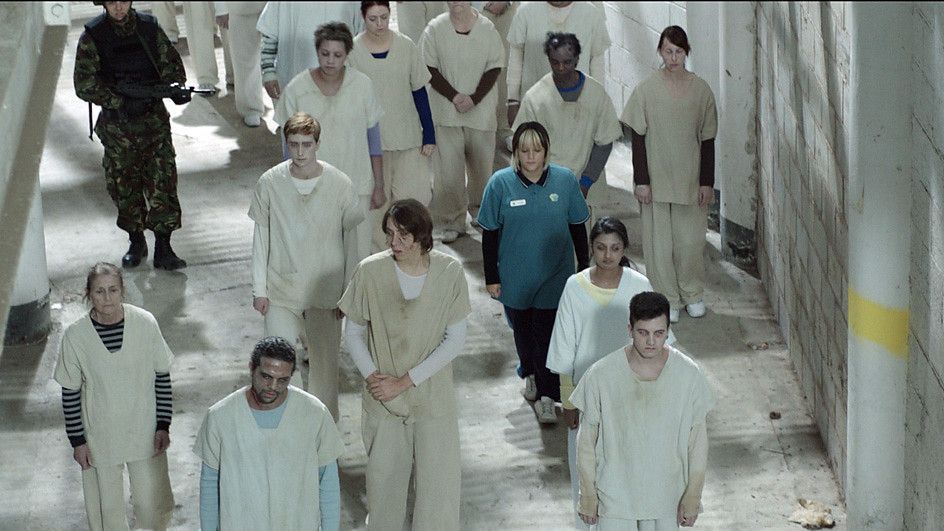On March 17, BBC Three will introduce fans of the undead to Kieren Walker (get it, Walker!), a zombie who just wants to fit in with the normal people in his village. It turns out that reintegrating into society isn't so easy when you have "PDS" (Partially Deceased Syndrome). Kieren feels guilty about all the horrific things he did when he was a zombie, but according to the trailer, it's a good sign that he now has "feelings."
Like this year's zombie romance Warm Bodies, In the Flesh presumes that those who have risen from the grave are not permanently damaged: After all that hunting around for brains and scaring the locals, they can, in fact, be rehabilitated. But zombies are just the latest monsters to be "humanized" in television and in film. We are in the middle of a streak of movies and TV shows about ambivalent vampires -- from Twilight to The Vampire Diaries. All of these brooding vamps owe a great debt to David Boreanaz's portrayal of Angel, a reformed vampire attempting to redeem himself through not one but two long-running dramas. But zombies and vampires are very different breeds of monster: Vampires are generally chattier than zombies (or at least they have a way with words); part of what's dangerous about a vampire is that he can talk you right out of your humanity. These master manipulators aren't dissimilar from the serial killers who have been cropping up in prime time lately.
Vampires are redeemable because, even as thirsty killers, they’re still kind of human. They talk, they interact, they form bonds with other vampires and with the living. Werewolves also are generally portrayed as more man than beast. There are a lot of werewolf stories (like Teen Wolf) in which the werewolf desperately wants to stay human. But zombies? They seem irredeemable, and completely without analog in our society. They're already dead, after all. And as The Walking Dead has spent countless hours proving to us, they don't come back the same, ever.
In the Flesh writer Dominic Mitchell takes a different view of zombies. In an article on the BBC writers' blog, he said he was initially trying to write about a boy who has a psychotic episode, commits violent acts, and then has to return to his rural family to face what he’s done. Mitchell chose to turn this into a zombie story after watching a movie in which survivors pick off the dead with self-righteous glee; he wanted to tell the story of a zombie who was still "somebody's son."
The relationship between violence and mental illness has been in the news a lot in the months since the shootings in Aurora, Colorado, and Newtown, Connecticut. In zombie movies, we almost never know why the zombies want to kill us -- they just keep coming. No matter how hard we search for answers in these recent mass killings, we may never know why those men decided to kill total strangers. But as a society, we have to figure out what to do with people who do inexplicable and evil things. I'll be watching In the Flesh to see how they answer those difficult questions about redemption, loss, and the nature of humanity.


